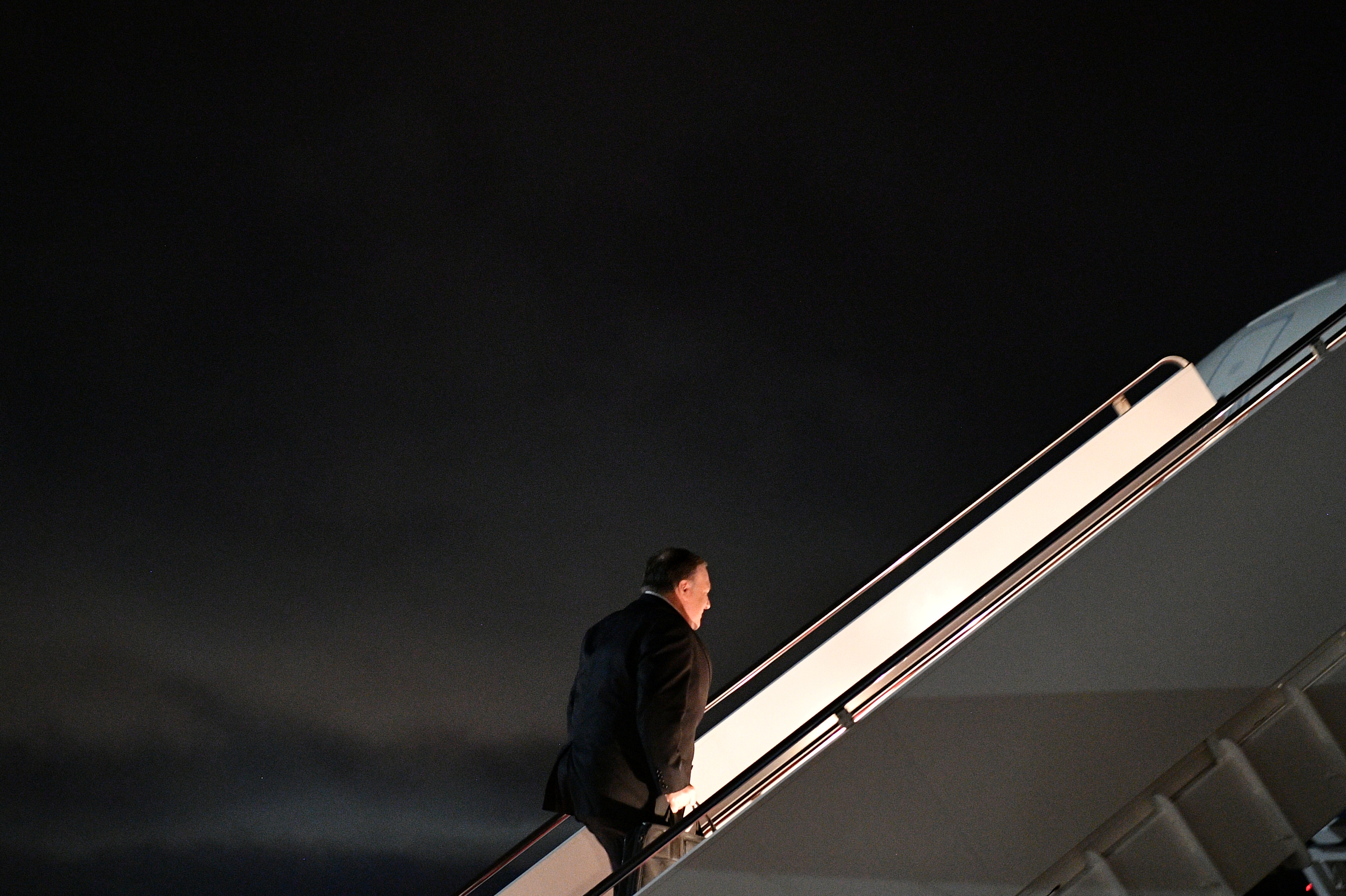Why a US-driven dispute over Arctic Council climate language is different this time around
The U.S. sought to soften climate change language in the 2017 Fairbanks Declaration before eventually relenting. Here's why 2019 may be different.

Refusing to talk about climate change in hopes it will go away is hardly a sensible strategy.
But it’s not really a surprise that U.S. Secretary of State Mike Pompeo wants to downplay or ignore the topic at the Arctic Council ministerial meeting in Rovaniemi, Finland on Tuesday.
A Kansas Republican, Pompeo is a loyal follower of President Donald Trump, taking his cues from the man who famously said climate change was a hoax invented by China.
Pompeo, who branded his agency the “Department of Swagger” on Instagram last year, has long been in the ranks of climate change deniers.
“There are scientists who think lots of different things about climate change,” Pompeo said six years ago on C-Span. “There’s some who think we’re warming, there’s some who think we’re cooling, there’s some who think that the last 16 years have shown a pretty stable climate environment.”
In 2017, he told Congress he hadn’t changed his mind, showing he was willing to put his ideology ahead of science.
Pompeo’s staff has been making noises that he doesn’t want climate change or the Paris climate agreement included in the Arctic Council declaration that is to follow the meeting in Finland. The Washington Post quoted anonymous sources as saying that the U.S. had softened its opposition in recent days, but the real test will be the final product.
President Trump hired Pompeo last year after firing Rex Tillerson, the former head of ExxonMobil who occasionally challenged Trump.
In 2017, Tillerson’s staff wanted the Arctic Council to soft pedal climate change in a statement expressing a multi-national consensus at the Fairbanks ministerial meeting.
“There was a great deal of debate as to whether or not climate would even be addressed in the declaration,” Alaska Sen. Lisa Murkowski was quoted as saying at the time. “It is significant to note that not only was it addressed, it was acknowledged in the Fairbanks Declaration that climate change is happening, that we’re seeing impacts in the Arctic at twice the rate as in other places, and it is attributable to emissions.”
The proposed text for the Fairbanks Declaration included a clear statement that the “pace and scale of continuing Arctic warming will strongly depend on future emissions of greenhouse gases and short-lived climate pollutants.”
Because of U.S. pressure, the word “strongly” was removed from the final text.
In 2017, Murkowski said she hoped that Tillerson could go back to Trump and use the Fairbanks Declaration to “make the argument that it’s important to clarify our climate policy.”
Pompeo is unlikely to be amenable to such a position.
Whether the Finland Arctic Council Ministerial Meeting produces a watered-down statement on climate change or not, the pressure brought to bear on the Arctic Council this way is indicative of what some observers have identified as a structural problem in its operation that isn’t going away.
“The elephant in the room in regional Arctic politics is climate change,” Heather Exner-Pirot and five other authors wrote in a February blog post of the Arctic Institute.
“The frequent reluctance of American and Russian, and occasionally other governments to openly accept and commit to mitigating climate change through reducing greenhouse gases, let alone discuss the challenges of adapting to a necessary post-petroleum future, has precluded the Council from addressing one of the major threats to sustainable development and environmental protection in the region. The Arctic Council’s lack of efforts to mitigate climate change is a weakness,” they wrote.
For all that, the council has provided a model for global leadership in what it has attempted. It has been more effective over the past 15 years than other regional forums, they said, beginning from the 2004 Arctic Climate Impact Assessment.
“It is a truism that someone’s greatest strength is often their greatest weakness,” Exner-Pirot and her colleagues wrote. “So it is with the Arctic Council. A few of its core institutional features have both pros and cons, but changing them would add unnecessary risk to the integrity of the forum.”
Dermot Cole can be reached at [email protected].